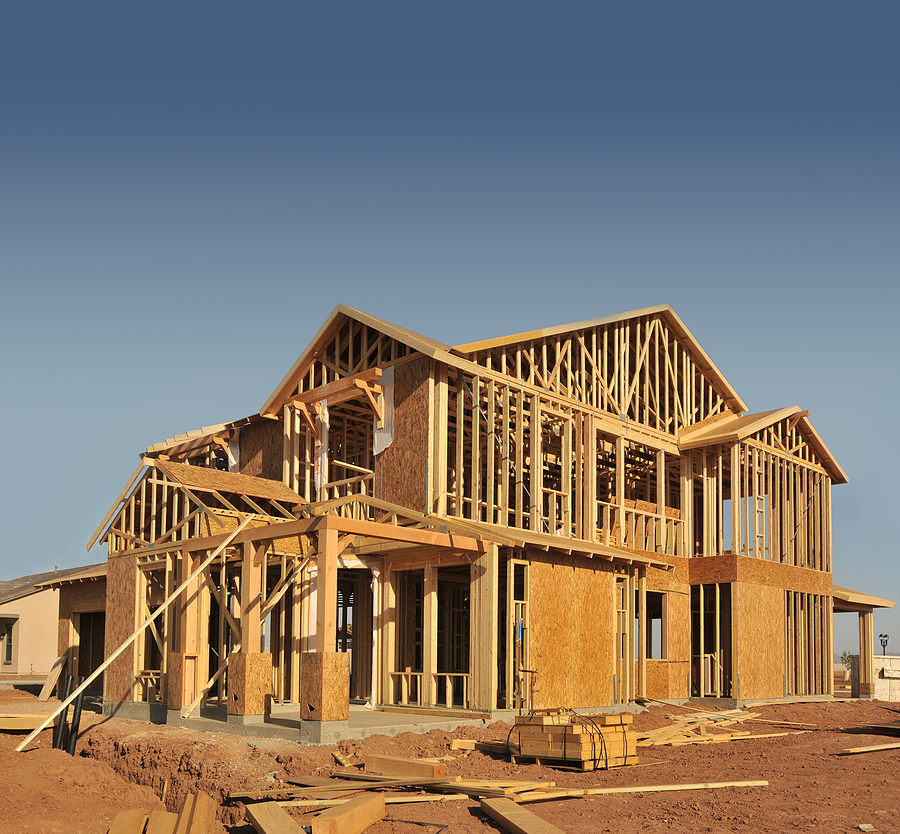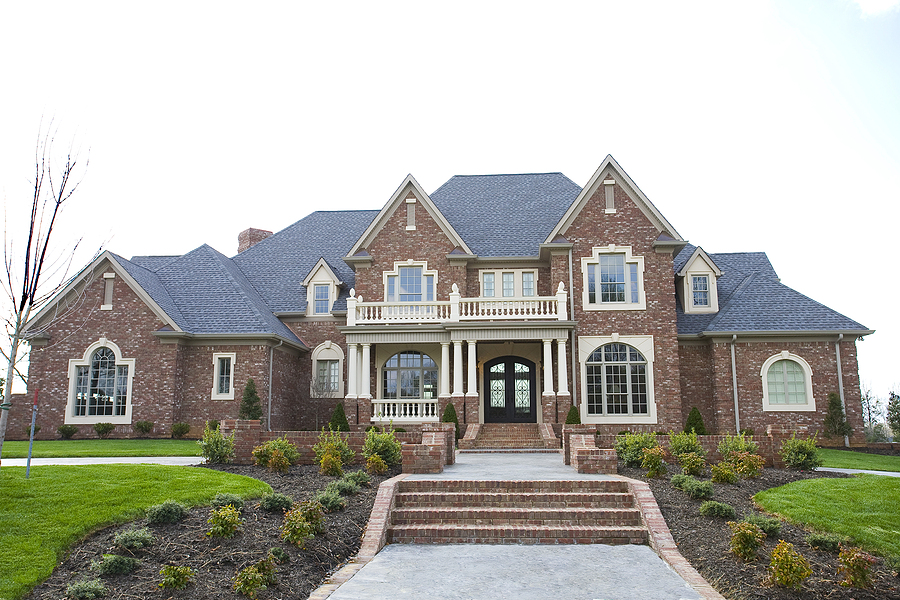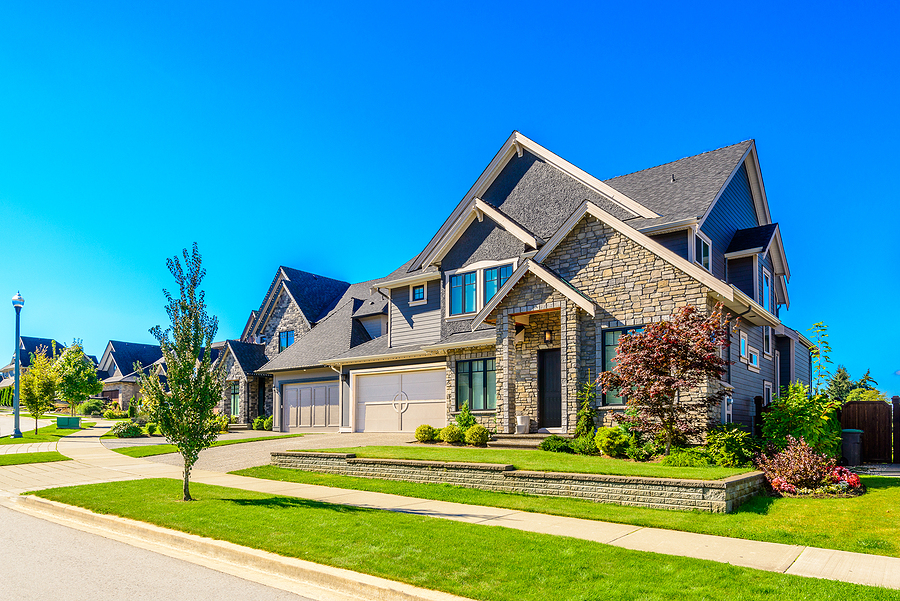Written by: Sam Isham
When buying a new construction home vs existing one, two important factors come to play — the availability of new construction home are your budget and the availability of new buildings in your preferred areas. The allure of new construction gems can be understandable: Even when there may be great existing buildings in the market, unfortunately not everyone enjoys resale or pre-owned stuff.
It may said though that just become a house is newly built does not mean buying a new construction home is perfect for you. In fact, many new constructions are done by large-scale builders who build hundreds of cookie-cutter houses a year that look the same in crowded, smaller and smaller lots (don’t get me started!) — I have written about this is a previous post. If you really want a new constructed home that is unique for you, consider contacting an expert custom builder like myself/SLiJR.
In any case, when buying a new construction home, although it may smell like a new house, keep in mind that there are always things to watch out for in order to make a good investment.
Table of Contents
Buying a New Construction Home Vs Existing? 6 Gems To Take to Heart
1. Don’t Rule Out The Possibility Of Haggling With The Contractor
The most widespread misunderstanding among first-time customers buying a new construction home is that builders would not negotiate on pricing. According to Kerron Stokes, a Representative with the Repository at RE/MAX Leaders in the Denver metro market, this is not the case.
“You may haggle over budget, lot borders, loan charges, and other things,” Stokes says. “At first, a contractor may say no, but keep pressing. You won’t know the answer unless you ask.”
When working with builders, choosing a professional build real estate expert may provide you greater confidence. Additionally, using an agency as a buyer is free; according to Stokes, builders typically pay the agent’s from their advertising budget.
2. Make A Budget For Materials That The Builder Didn’t Have
New construction is simply a blank canvas. Many new homes, for example, do not come with well-kept lawns; you will have to pay extra for that when you move in. Furthermore, if you purchase a property in a neighborhood with a homeowners organization, you may only have a limited amount of time to put down lawn or plant trees, both of which may cost thousands of dollars.
When buying a new construction home vs existing, a good custom builder can assist you to ensure all these issues are cross-checked and double-checked, just as we do at SLiJR Construction in in North Carolina. In any case, be sure when working with a builder to check your receipt and the HOA standards carefully so you can plan and budget for these expenses as soon as possible. Receiving a harsh HOA letter pointing out everything your builder failed to do invariably puts a damper on a new homeowner’s excitement. Even if your house won’t be done for months or years, receive quotes for the goods you’ll have to pay for and set away money for those tasks.
It’s worth noting that new homes frequently lack essentials such as window treatments, toilet roll dispensers, bathroom accessories, and even light fittings. Clarify what is and isn’t typical in your new house to avoid misunderstandings after you move in.
3. Don’t Choose A Loan Without Doing Some Research First
Many large builders have their own mortgage firms or work with preferred lenders. These may or may not provide reasonable rates and terms. You won’t be able to evaluate anything until you look into mortgage rates.
Chyrise Harris is a great illustration of this. She received a preapproval letter from an independent lender and was set on using it to buy a new home in Denver’s Stapleton neighborhood. On the other hand, her builder’s selected lender won her business by providing a great customer experience.
“Knowledge is power,” Harris argues, “but if you don’t have something against which to compare your experience, you won’t know if you’re getting the best service.”
According to Kerron Stokes of RE/MAX, Harris’ real estate agent, when buying a new construction home, you should let in-house and outside lenders compete for your business. This gives you more negotiation leverage when it comes to loan costs or debt levels.
For example, before accepting incentives provided by a contractor’s creditor, Stokes advises caution: they don’t always save you money. “If a contractor’s lender says, ‘If you choose us, we’ll give you $15,000 in incentives,’ but an outside lender provides a quarter-point lower interest rate over the length of the loan, that $15,000 incentive may end up being more costly in the long run,” he adds. “During the building period, you should shop around for finance rates.”
A good custom home builder will explore other lenders with you. That’s what we do at SLiJR in NC. Even if you end up using our preferred lenders (who we usually vest and trust), at least you would have shopped around and satisfied yourself that you are getting the best rate you can possible get.
4. Your Options Could Be Affected By Timeline
While a model home may not be legally classified as a new home in some situations, purchasing one guarantees that you will be the first to live in it. That’s correct, depending on the state of a building project, you could be able to get a model house (complete with premium extras) for a reduced price.
If a certain number of units of a property have been sold, the builder will most likely wish to sell the model house. This is because the builder may very well go bankrupt every day the place remains vacant. So, when debating about buying a new construction home vs existing, it sure is a terrific alternative for buying a new construction home in a hurry. It means you’d be receiving a brand new home that’s ready to move into right away.
5. Make Sure You Understand The Builder’s Guarantees And Timelines
You’ll learn about two sorts of construction warranties when you buy a house: implicit and unconditional.
Implied promises, according to David Jaffe, vice chairman of the National Association of Home Builders’ construction liability and research work, include any workmanship flaws that affect a new home’s livability, adaptability, or safety, depending on local building regulations and standards. According to him, implied promises are usually vaguely phrased, with a 10-year liability cutoff time for builders.
Some builders provide an explicit guarantee, which contains more specific language about what is covered and when it expires for specific portions of a new building. “An explicit warranty spells out the problems and remedies for which the builder is responsible, as well as the warranty duration and a procedure for resolving issues,” Jaffe notes. “Builders don’t want to become engaged in long legal battles since their reputation is everything to them; this type of assurance provides more defined limitations.”
In the tough decision of buying a new construction home vs existing, note that builders may urge consumers buying a new home to surrender their rights under an implied warranty when an explicit warranty is offered. Therefore, it’s vital to read all warranties carefully.
6. Upgrades That Will Not Raise The Value Of The House Should Be Avoided
One more thing to keep in mind when buying a new construction home: don’t get too wrapped up in customizing. When you go into a contractor’s dealership, the possibilities and add-ons might seem endless. But, before you embark on an improvement binge, examine whether ones would increase the home’s worth rather than just make it appear prettier, recommends Stokes.
Conclusion
Purchasing a new constructed house has several advantages. However, there are several hazards, so purchasers should exercise caution at all times and seek the advice of a professional when required. Before entering an agreement for your gleaming new house, thoroughly examine all of the advantages and disadvantages of new home construction.
We have discussed some of the tips for buying a new construction home vs existing that you must not ignore. But things are always changing. Also a good builder can always help you. If you live in NC and are in search of a reputable custom builder, please contact us at SLiJR and either myself or one of our trusted associates will be glad to help get you started. What ever the case, good luck with your new home.






Pingback: 11 Proven Tips For Buying A New Construction Home - SLiJR Construction & Consulting Builder